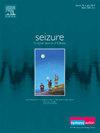癫痫发作检测器对癫痫治疗和费用的影响
IF 2.8
3区 医学
Q2 CLINICAL NEUROLOGY
引用次数: 0
摘要
癫痫的管理在很大程度上依赖于癫痫发作的准确检测。不可靠的癫痫读数可导致错过癫痫发作和错误的医生就诊,由于假阳性。这些不准确还可能导致治疗延迟或药物调整不当,最终增加医疗保健成本。在这里,我们引入了一个模型来模拟不完美的癫痫发作读数对(感知的)治疗效果、医生就诊次数和相关医疗保健费用的影响。方法:为了评估癫痫发作检测系统的可靠性对治疗的影响,我们引入了一个简单的模型,该模型产生癫痫发作的概率为P,可以通过药物改变。此外,我们模拟了不同程度的癫痫发作检测器的可靠性,其中药物的变化是基于感知到的癫痫发作频率。我们根据识别真正的癫痫发作、医生就诊和药物变化次数作为检测器可靠性的函数来量化由此产生的成本。我们还区分了检测系统中低灵敏度(未发作)和低特异性(假阳性)的影响。结果:我们发现癫痫发作读数的不可靠性程度显著影响整体医疗保健费用。在敏感性和特异性都在70%到85%之间的情况下,与具有更高诊断准确性的系统相比,成本可以增加3到5倍。对于灵敏度和特异性介于70%和80%之间的检测器,额外的费用主要是由于错过癫痫发作(低灵敏度)和不必要的医生就诊或药物调整(低特异性)的综合影响。此外,不可靠的系统可能导致延迟或不适当的药物改变,使有效治疗复杂化。结论:我们证明可靠的癫痫检测系统可以降低医疗成本并改善癫痫治疗。本文章由计算机程序翻译,如有差异,请以英文原文为准。
Impact of seizure detectors on treatment and costs of epilepsy
Introduction:
Epilepsy management relies heavily on the accurate detection of seizures. Unreliable seizure readouts can lead to missed seizures and erroneous physician visits due to false positives. These inaccuracies can also result in delayed treatment or inappropriate medication adjustments, ultimately increasing healthcare costs. Here, we introduce a model to simulate the effects of an imperfect seizure readout on the (perceived) efficacy of treatment, the number of physician visits, and associated health-care costs.
Methods:
To assess the effects of the reliability of seizure detection systems on treatment, we introduce a simple model that generates seizures with a probability , which can be altered by medication. In addition, we simulate different degrees of reliability of seizure detectors, where changes in medication are based on the perceived seizure frequency. We quantify the resulting costs in terms of recognizing true seizures, physician visits, and the number of medication changes as a function of detector reliability. We also differentiate between the impacts of low sensitivity (missed seizures) and low specificity (false positives) in the detection systems.
Results:
We show that the degree of unreliability in seizure readouts significantly affects overall healthcare costs. In scenarios where sensitivity and specificity are both between 70% and 85% and thus accuracy is similarly low costs can increase by a factor of three to five compared to systems with higher diagnostic accuracy. For detectors with sensitivity and specificity ranging between 70% and 80%, the additional costs are primarily driven by the combined impact of missed seizures (low sensitivity) and unnecessary physician visits or medication adjustments (low specificity). Furthermore, unreliable systems may cause delayed or inappropriate changes in medication, complicating effective treatment.
Conclusion:
We demonstrate that reliable seizure detection systems can reduce healthcare costs and improve epilepsy treatment.
求助全文
通过发布文献求助,成功后即可免费获取论文全文。
去求助
来源期刊

Seizure-European Journal of Epilepsy
医学-临床神经学
CiteScore
5.60
自引率
6.70%
发文量
231
审稿时长
34 days
期刊介绍:
Seizure - European Journal of Epilepsy is an international journal owned by Epilepsy Action (the largest member led epilepsy organisation in the UK). It provides a forum for papers on all topics related to epilepsy and seizure disorders.
 求助内容:
求助内容: 应助结果提醒方式:
应助结果提醒方式:


